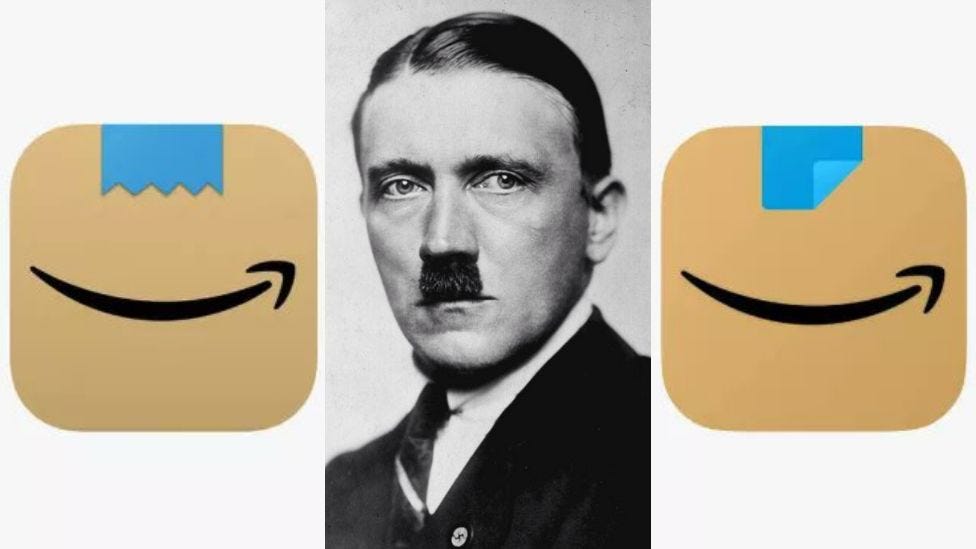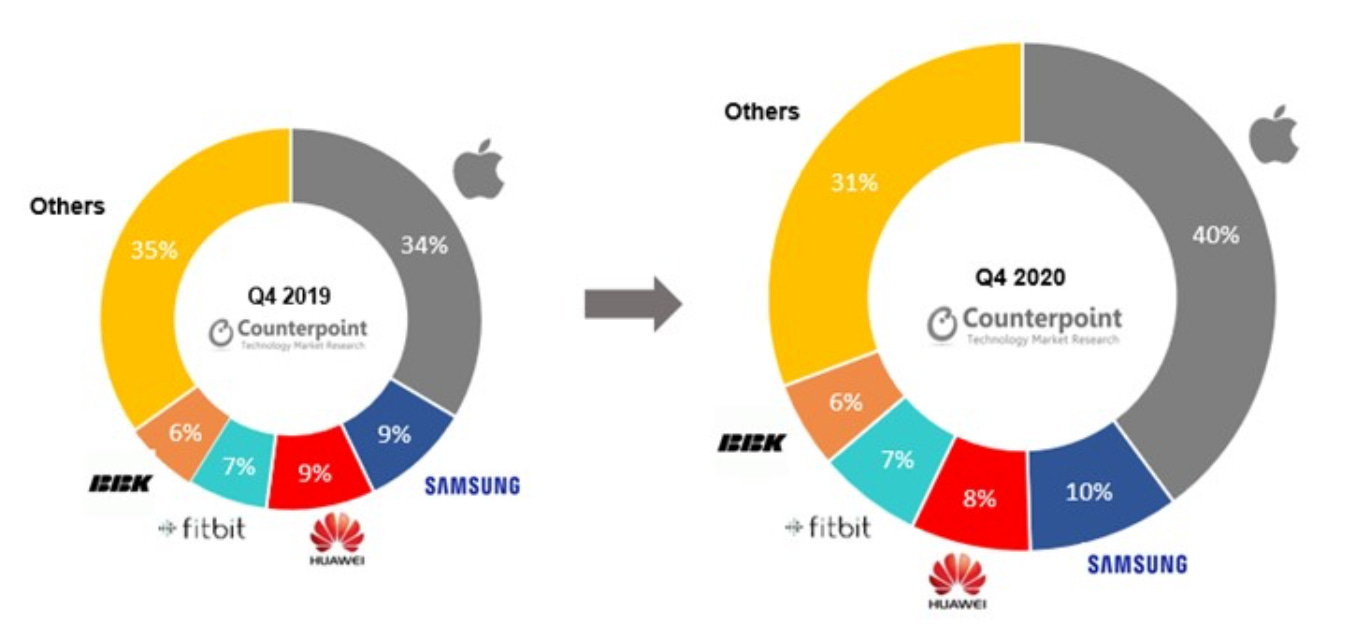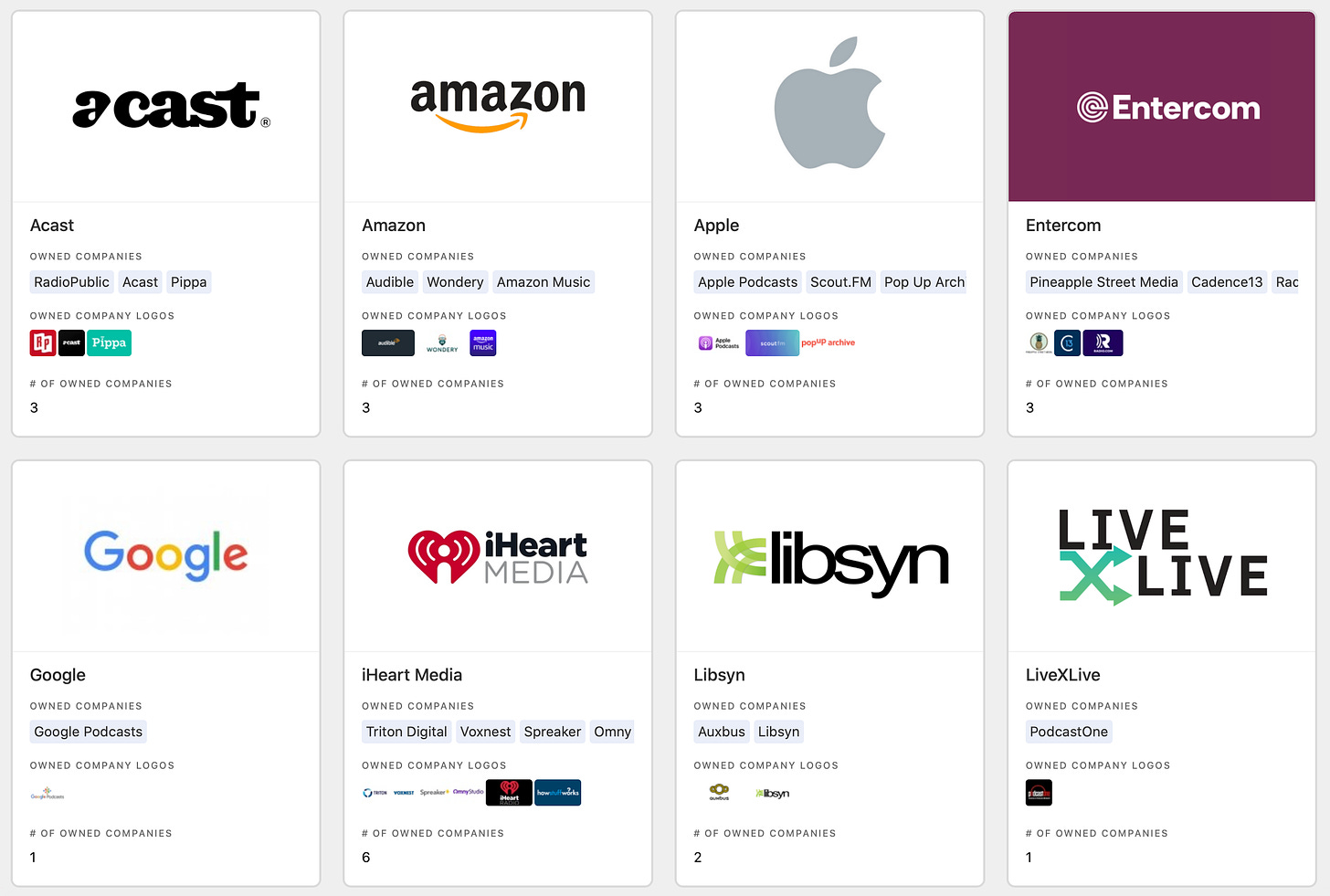No more cookies for you. What does the post-cookie future look like
Also in this newsletter: WTF are NFTs?
👋 Welcome to FWIW by David Tvrdon, your weekly tech, media & audio digest.
🌐 Online version. 👉 Be sure to subscribe, if you were sent this newsletter.
In this edition
🍪 Google says bye bye to cookies
😶 WTF are NFT and why should you care
💬 Other tech, media, gaming, audio & podcasting news
📝 Here are the latest pieces I wrote:
The web without cookies is coming
📸 by Christian Wiediger on Unsplash
Google’s announcement saying they are moving on from cookies was probably the biggest news of the week. Some thoughts from the internet.
Third-party cookies have been blocked for a while in Safari and Firefox (though the browsers differed in how far they go), and Google plans on doing the same in Chrome. The cookies allow advertisers to track you as you move between different websites, which gives advertisers a better idea of what your interests are. These hyper-targeted ads are very valuable, resulting in the creation of an ad industry whereby individual user data is proliferated across “thousands of companies,” according to Google.
Will Oremus over at Pattern Matching:
The possible approach that Google specifically mentioned in its blog post is called Federated Learning of Cohorts, or FLoC, which the company claims can be 95% as effective as cookies. (Google has a white paper explaining it in detail if you’re into that kind of thing.) FLoC has some supporters but also some vehement detractors: The Electronic Frontier Foundation’s Bennett Cyphers called it a terrible idea, arguing that it will replace old privacy flaws with new ones and “exacerbate many of the worst non-privacy problems with behavioral ads, including discrimination and predatory targeting.”
So what are the alternatives? Google’s plan is to target ads against people’s general interests using an AI system called Federated Learning of Cohorts (FLoC). The machine learning system takes your web history, among other things, and puts you into a certain group based on your interests. Google hasn’t defined what these groups will be yet but they will include thousands of people that have similar interests. Advertisers will then be able to put ads in front of people based on the group they’re in. If Google’s AI works out you really like sneakers, for example, then you’ll be chucked in a group with other similarly-minded sneaker fans.
It all works in a similar way to how Netflix’s algorithm works out what you might like to watch. In essence, your viewing history is similar, but not identical to, plenty of others. If Person A and Person B both like the same four horror films, for example, then chances are Person A will like a fifth horror film that Person B has just watched. Now just expand that out to cover billions of people.
In other news
TECH
⚔️ A leading critic of Big Tech will advise Joe Biden. Tim Wu, a Columbia law professor, was named a special assistant to the president for technology and competition policy on Friday. Wu has warned about the consequences of too much power in the hands of a few companies and said the nation’s economy resembled the Gilded Age of the late 1800s. [NY Times]
🚀 A space challenger from New Zealand says it wants to take on SpaceX and Blue Origin. Rocket Lab has been around for some years and its small flagship Electron rocket has flown 18 times in just under four years and delivered almost 100 satellites into space, with only two failed launches. Now it says it wants to become a true rival. A good profile if you haven’t heard of the company before. [MIT Technology Review]
🤦♂️ Read my lips: Lie detectors don’t work, the whole thing is based on pseudoscience and bad research. Not new information but useful to remind ourselves, especially when there are politicians who famously like to mention they are not afraid to be tested. [Vice]
😅 Amazon changes the app logo that 'resembles Adolf Hitler’. It’s been a while since there was a proper logo redesign controversy, good to know these still happen. [BBC]
📸 What if you could create Live Photos out of your old ones? That’s what ‘Deep Nostalgia’ by the company My Heritage does. The new feature can turn old photos into moving videos, so maybe even more Harry Potter than Live Photos. [Gizmodo]
🤳 Instagram launches ‘Live Rooms’ for live broadcasts with up to four creators. This is nice, but I wonder how many 4-person IG Live chats will there be, it’s still a pain to organize 4 different people at the same time. [TechCrunch]
📈 Zoom Video beat expectations, revenue grew more than expected. Zoom said it had 467,100 customers with more than 10 employees at the end of the fiscal fourth quarter. [CNBC]
🇨🇳 China is serious with the electronic Chinese yuan (eCNY). The digital currency is now being tested in cities such as Shenzhen, Shanghai, and Beijing. No other major power is as far along with a homegrown digital currency. [NY Times]
“This is about more than just money,” said Yaya Fanusie, a fellow at the Center for a New American Security, a think tank, and an author of a recent paper on the Chinese currency. “It’s about developing new tools to collect data and leverage that data so that the Chinese economy is more intelligent and based on real-time information.”
😶 WTF are NFTs? You have probably come across Non-fungible token yet and don't understand what they are. So here it is: In short, they represent the original digital source and are blockchain-based. A GIF can be kind of NFT certified, meaning it is marked by its author as original and someone can buy that NFT. Think of NFT as a certification of originality. Sure, but if you create a GIF, have it NFT-certified and I copy your GIF I have the same thing, only without NFT and possibly without paying anything. So, what’s the point? So far, millions of dollars have been spent on authorized meme-art, notably a crude cat animation that went for nearly half a million bucks. [The Verge, Vox]
🎶 Why Square bought Tidal? [Protocol]
If there's a theme around the moves, it's control. Having its own bank gives Square more purchase in the financial world. And if Square does something with Tidal, which promised to give artists a bigger cut of the money produced by streaming, it will likely be about giving musicians more control over the revenue streams they create.
It also suggests Dorsey wants to diversify Square far beyond its original smartphone-swipe business. Already, he talks about Register and Cash App as two distinct businesses within Square. (Caviar was another, until Square sold it to DoorDash.) Now Tidal joins the portfolio.
📊 Global smartwatch shipments rose 1.5% in 2020. Apple is leading, no surprise there, no.2 Samsung, no.3 Huawei, no.4 Fitbit. Also, thanks to Apple’s dominance the average price of smartwatches is rising. [Counterpoint Research]
🦾 This TikTok Tom Cruise impersonator is using deepfake tech to impressive ends. Weeks of work and a top impersonator were needed to make the viral clips, the creator behind them said. [The Verge]


FROM LAST WEEK
Some good reads:
I helped build ByteDance's censorship machine I wasn't proud of it, and neither were my coworkers. But that's life in today's China. [Protocol]
Clubhouse and the future of cult-driven social platforms. The key to Clubhouse’s rapid accession is that its social design makes it an ideal platform for cults at a time when the social internet is rapidly evolving away from organizing around communities and toward cults. Clubhouse’s rise likely signals major strategic shifts that several legacy social platforms are going to have to consider. [The Information]
“Mark changed the rules”: How Facebook went easy on Alex Jones and other right-wing figures. [Buzzfeed News]
AI researchers doubt the efficacy and ethics of emotion recognition tech, as studies show facial expressions match a person's emotions only 20%-30% of the time. [OneZero]
Twitter announces paid Super Follows to let you charge for tweets. [The Verge]
MEDIA
📊 Three charts that explain the streaming wars. If you are into this stuff, I really recommend this article, it shows for example that the majority of people still subscribe to only 1 streaming service, maybe up to 20% to 2 services and less than 10% to 3 or more. [Vox]
🤸 The business of influence is professionalizing. More and more ad agencies, unions, and industry bodies are taking the influencer business seriously. And influencers are signing themselves to work with them. Of course, there has to be some kind of management tool to process all of the deals, communications and rules and that creates space for companies like Fohr whose Ambassador Management Platform (AMP) provides influencers with the option to create their profile and link their social accounts, and then can be easily processed. [NY Times]
👍 A good primer on creator economy. If you are not sure what creator economy is, this article is for you. Mark Stenberg writes: “The creator economy consists of individuals with unique skill sets using platforms to monetize their craft.” [Medialyte]
📲 The Washington Post invests more in its app strategy. The goal is to reduce subscriber churn and prepare for a cookie-less future. Subscribers using The Post app are more likely to read more and continue subscribing than subscribers who only read The Post on the web. [Adweek]
📺 Rupert Murdoch at 90: Fox, succession and ‘one more big play’. A big profile of News Corp. founder and the family drama behind the scenes. [Financial Times]
⏩ Netflix app adds ‘Fast Laughs’ tab with comedy clips streaming in a TikTok-like feed. Honestly, this is a great idea, sometimes you only have a few minutes and this way you can still use Netflix. [Variety]
FROM LAST WEEK
How Marty Baron and Jeff Bezos Remade The Washington Post [NY Times]
Making a More Diverse, Equitable and Inclusive New York Times [NYT Company]
NY Times Columnist David Brooks Blogged For Facebook's Corporate Site [Buzzfeed News]
AUDIO & PODCASTING
👔 A new company called Audio Collective has launched to help build businesses on Clubhouse as brands rush to leverage the platform. Think of it as a lobbying body for the app creators and also a kind talent/influencer agency that wants to connect Clubhouse creators with brands. [NY Times]
📱 Clubhouse is booming, so is the ecosystem around it. I have noticed it some time ago, but there are a lot of startups or just simple tools or websites popping up improving on the Clubhouse experience. Just to name a few: Ask Clubhouse, Clubpad, Host Notes, Clubhouse Recorder, Direcon… (+ there are at least four apps for adding a colorful ring around your Clubhouse avatar.) [Wired]
🎤 Twitter users on Android can now join the platform’s Clubhouse-like Spaces. I keep seeing some people start up a Space but no other people are joining. Tried it myself, no people joining, will see what the future brings to this Clubhouse challenger. [The Verge]
🎙️ Podcast Movement partners with Facebook on series of tools for podcasters. [Podcast Movement]
🤑 Who owns who in podcasting? [Evo Terra]
🎧 Here’s a first look at Mark Cuban’s podcasting platform Fireside. [The Verge]
Broadly, the app is best described as a hybrid between Spotify’s Anchor software and Clubhouse. Although it prioritizes live conversation, like Clubhouse, it tries to make off-the-cuff conversations sound more professional. Intro music welcomes people into a room, for example, which is a nice touch, but it doesn’t exactly translate like it does during an edited podcast. The music, for now, sounds disjointed and out of place.
The broad emphasis, at least based on the conversations happening in the app, appears to be on how Fireside can help podcasters monetize their work through exclusive conversations or, in some cases, recruit them to Fireside for all of their podcasting efforts. The app encourages audience participation more than Clubhouse, in that users can react to conversations without being onstage, and they can type comments or questions.
FROM LAST WEEK
All of Spotify Stream On Announcements [Spotify On The Record]
Catch me on Twitter or LinkedIn. Was this forwarded to you? 👉 Subscribe over here.










